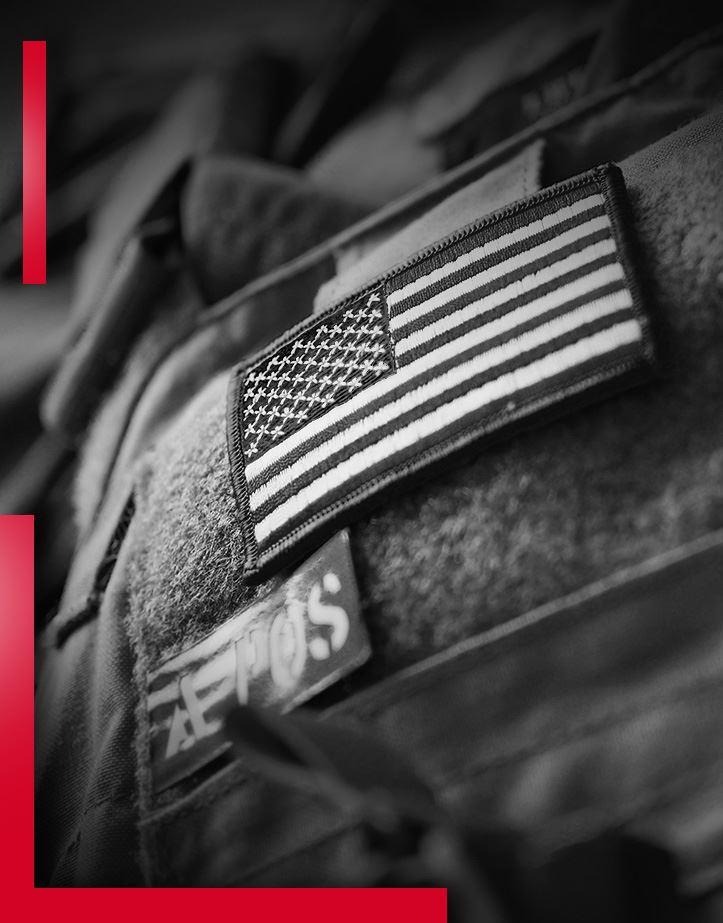

Our Services
Military law is a complex and daunting realm. Navigating it with the guidance of an experienced military attorney can help you achieve the most favorable outcome. Military Justice Attorneys represent military servicemembers in:
-
When should I hire a civilian defense attorney?
In general, the earlier the servicemember retains a civilian defense attorney, the better, for a host of reasons. The early stages of investigation, before the preferral of charges, can provide an excellent opportunity to engage the command on alternative ways to dispose of the allegations. Though a command would never admit it, convenience does matter—even more than ensuring good order and discipline. Commanding Officers/Generals want to fight wars, not convene courts, and sometimes simply getting to them early can greatly benefit the servicemember accused of misconduct.
Another important advantage to hiring an attorney immediately is that law enforcement and commands can no longer interrogate or ask questions of the accused, unless consent is given by the defense counsel.
-
If I am an active duty servicemember, who is under investigation, should I hire a civilian defense attorney?
Over the past several years MJA has provided hundreds of free consultations to servicemembers who are under investigation or pending court-martial, and a common question that is discussed is whether hiring a civilian defense attorney is the prudent thing to do. Read More Here.
-
Why do you need a civilian defense attorney?
It is quite common to encounter an inexperienced uniformed judge advocate, sometimes right out of law school. With little to no exposure as practicing attorneys in military law, these newly minted judge advocates are routinely detailed to servicemembers suspected of misconduct by the government, even though they have never argued in front of a military judge or represented an individual at a contested court-martial. Experience does matter.
Other criteria to consider when deciding whether pursue civilian representation include:
- the fact that commands have no influence over civilian defense attorneys;
- the increased likelihood of civilian defense attorneys to negotiate client-friendly plea agreements; and
- the propensity of uniformed judge advocates to stay on the case when civilian defense attorneys are hired by a servicemember—two attorneys are always better than one.
Additionally, uniformed judge advocates commonly carry heavy caseloads—sometimes as many as thirty separate cases. Civilian defense attorneys do not normally manage such a high volume of cases; thus it is far more likely that a civilian defense attorney will devote to you the amount of time and attention your case deserves.
A dedicated and seasoned legal advocate can guide you through your military justice proceedings, whether they include trial or a review board.
-
 Does the Defense Base Act Cover PTSD and TBI Injuries?Read Article
Does the Defense Base Act Cover PTSD and TBI Injuries?Read Article -
 AFFF Lawsuit Update: What Service Members and Veterans Need to KnowRead Article
AFFF Lawsuit Update: What Service Members and Veterans Need to KnowRead Article -
 What the Military’s Drug Screening Labs Don’t Want You to KnowRead Article
What the Military’s Drug Screening Labs Don’t Want You to KnowRead Article -
 Executive Order Gives Service Members Discharged Under Military’s COVID-19 Vaccine Mandate Path to ReinstatementAdministrative Appeals, Administrative Separation, Boards for Correction of Military/Naval Records, COVID-19 Vaccine, Discharge Review BoardsRead Article
Executive Order Gives Service Members Discharged Under Military’s COVID-19 Vaccine Mandate Path to ReinstatementAdministrative Appeals, Administrative Separation, Boards for Correction of Military/Naval Records, COVID-19 Vaccine, Discharge Review BoardsRead Article -
 Military Justice Attorneys Secure Not-Guilty Verdict for Soldier Charged with MurderCourts-MartialRead Article
Military Justice Attorneys Secure Not-Guilty Verdict for Soldier Charged with MurderCourts-MartialRead Article -
 Looking Back on 2024: MJA’s Year in ReviewRead Article
Looking Back on 2024: MJA’s Year in ReviewRead Article















